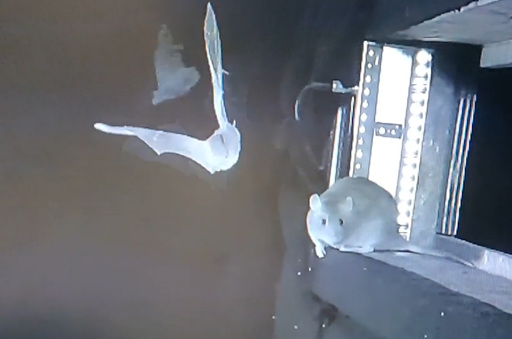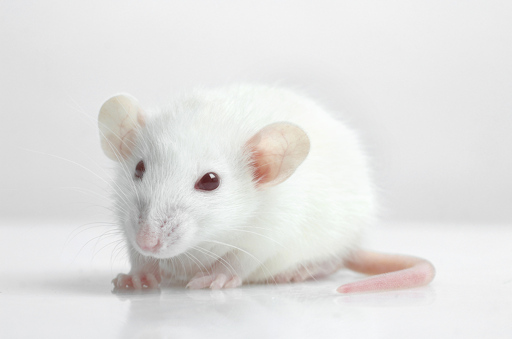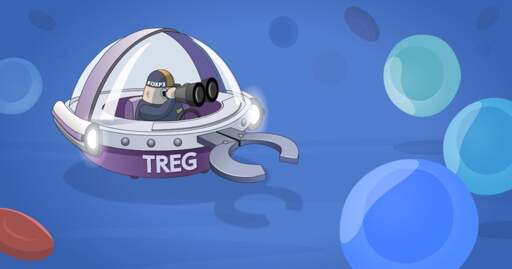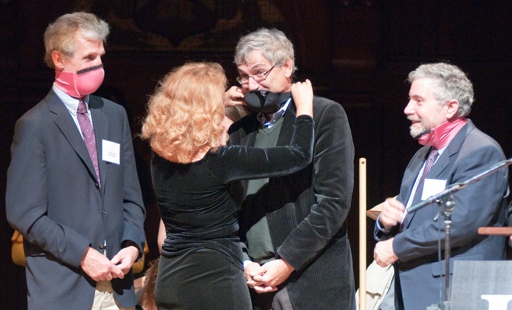Ask me about:
- Science (biology, computation, statistics)
- Gaming (rhythm, rogue-like/lite, other generic 1-player games)
- Autism & related (I have diagnosis)
- Bad takes on philosophy
- Bad takes on US political systems & more US stuff
I’m not knowledgeable about most other things
- 48 Posts
- 35 Comments

 28·1 month ago
28·1 month agoI’m not a subject matter expert on this so I had to look this up but… it seems that the experimental method was actually introduced over 10 years ago? They cited this paper (https://www.nature.com/articles/nn.3088) from Nature Neuroscience that I don’t have access to unfortunately
I also didn’t know this before, but it seems that maladaptive “approach-avoidance conflict” (https://en.wikipedia.org/wiki/Approach-avoidance_conflict) has been known to be a symptom and a predictor of depression for a while (https://www.sciencedirect.com/science/article/abs/pii/S0165032706000139)

 1·4 months ago
1·4 months agoRealistically I don’t think they (as in the authors) as researchers can do much… but as you pointed out, there are possible ways to deal with this. Rats are common pests and I would be surprised if there aren’t some experts out there, so I am hoping that even acknowledging this issue alone would lead to better outcomes. This paper got quite a bit of traction so it definitely helps

 5·4 months ago
5·4 months agopoor mice that sucks
Part of the necessary evils of doing science… there is the saying that the lab mice is the one who sacrificed the most for scientific research. Also there’s this cool monument in Russia: https://en.wikipedia.org/wiki/Monument_to_the_laboratory_mouse
From a scientific standpoint I hope they can do something useful with this technology too

 2·4 months ago
2·4 months agoThis is an excellent question… they mentioned it in the intro section that “… previous studies have shown that individual clinical and sociodemographic factors explain only a small proportion (typically less than 15%) of the variance in age at autism diagnosis”. They also addressed it a bit deep in the supplementary materials. Copied below:
- Demographic factors: Parental characteristics
We ran a few analyses to understand if parental characteristics can impact age at autism diagnosis, primarily through gene-environment correlations.
- Longitudinal analyses: In the longitudinal analyses of birth cohorts, accounting for ethnic minority status, parental socio-economic status, material deprivation, and maternal age at birth does not impact the variance explained by the GMM latent trajectories on age at autism diagnosis.
- Genetic analyses: In SPARK, controlling for parental socio-economic status and neighbourhood deprivation does not significantly attenuate the SNP heritability for age at autism diagnosis.
So I think the answer is yes, they did control for economic factors, and the effect is minimal

 2·4 months ago
2·4 months agoI’m almost certainly convinced that good early childhood intervention helps a lot. The paper also pointed out that the late-diagnosed geoup scored significantly worse on depression, self-harm, and other metrics… Even though the late diagnosed ones probably tend to have less severe symptoms (like how my diagnosis is supposedly “low support needs”). Not sure if early intervention was the sole cause of the massive discrepancy in mental health status here but it very much could be
I think the paper is more focused on genetics simply because of the field though. It is well known that ASD has a strong genetic component so there’s no denying that. But ASD is currently linked to like 300+ genes… I would presume that genetic discrepancy is what made some researchers interested in that. There was an accepted paper earlier this year by Olga Troyanskaya’s group that was also trying to see if there are different " subtypes" of Autism so to speak (https://doi.org/10.1038/s41588-025-02224-z)
Also I’m hoping that works like this can lead to better early detection and intervention (and hopefully not the other way)

 11·5 months ago
11·5 months agoDon’t remind me that… I was taking a stool sample at a Chinese hospital just 2-3 months ago (allegedly the best hospital in China, btw); my Americanized brain was not able to handle… what I had to do to

 31·5 months ago
31·5 months agoComing to you from the country where HOAs are funded by ad monitors installed in almost every elevator in commercial/residential high-rises, and public restrooms (even in the hospital!) never stock toilet paper because “people will steal it” (not joking)? Color me surprised…

 9·5 months ago
9·5 months agoI wonder if that is actually their long-term goal. I feel like anti-cheats are like the last obstacle for Linux gaming where some highly popular games are straight-up unplayable on Linux; with how much stake Valve has in the success of Linux gaming (Steam Deck duh) maybe they want to make it so that eventually all games with anti-cheats can run on Linux

 2·5 months ago
2·5 months agoUnironically… it is considerably easier to relocate as a scientist, if not only for the lack of language requirements (English is the lingua franca everywhere in academia) and being automatically a “high-skilled immigrant”
Also this is Nature News where my personal guess is 90% of their reader base work in academia sooo

 2·5 months ago
2·5 months agoSooo what I liked about this news is… On subreddits for researchers, I see a lot of negative sentiment towards the hard numbers of ppl wanting to leave US, because “EU has even fewer funding”, “difficult to integrate”, “no one really moved during the first term”, etc… In contrast to that this is actually a surprisingly level-headed and well-written report that discusses this on a more personal level, so I do appreciate that

 1·5 months ago
1·5 months agoThat checks out, thanks for pointing this out. I’m much more familiar with clinical trials where ppl’s race/ethnicity do play an importance (and is also a hot topic for debate… from both sides of the political spectrum), hence I was a bit surprised they didn’t include it. If there really is no significant cultural differences that would be amazing
Also one can dream they get 120+ participants for scanning

 4·11 months ago
4·11 months agoWelcome to the Google DeepMind Minecraft SMP server : ) (/s)

 20·11 months ago
20·11 months agoSo the funny thing is… the lead researcher added “finding diamonds” since it’s a niche and highly difficult task that involves multi-step processing (have to cut wood, make pickaxe, mine iron, …) that the AI was not trained on. DeepMind has a good track record with real life usage of their AI… so I think their ultimate goal is to make the AI go from “Minecraft kiddies” to something that can think on the spot to help with treating rare disease or something like that
Y’know they could have used something like Slay the Spire or Balatro… but I digress

 11·1 year ago
11·1 year agoFrankly I agree. From my personal experience, every single native Chicagoan has been calling that particular building “Sears Tower”. Even though the name has been officially changed for more than 15 years by this point…
And I thin OSM actually handled this quite well! The original Sears Tower name is still available as an “alt_name” tag on OSM as well, I just double-checked and yep it’s still searchable on the map

 5·1 year ago
5·1 year agoInteresting… A coworker of mine previously worked on a fintech project that needed to use open models. Apparently their team found the Llama models to be much better than anything Mistral had at the time… I’m hoping Mistral’s new model (the one featured in the news article) is better. Not sure if Le Chat is open weights like the Mistral/Mixtral lines though…

 39·1 year ago
39·1 year agoUnfortunately… Isn’t there a saying like “the amount of effort to refute bullshit is much large than the amount needed to produce it” or something? So sadly the HCQ thing is just going to stay there for now; the journal taking 4.5 years to retract it didn’t help either

 81·1 year ago
81·1 year agoWell neuroscience isn’t a very old field… More seriously though, I think biomedical scientists know surprisingly little about something if NIH doesn’t fund it… aaand that’s how we understood so little about our own household companions (and a bit too much about cancer. Seriously why do we know so many weird things about cancer much of those don’t even translate into therapeutics)

 8·1 year ago
8·1 year agoI clearly didn’t drink enough coffee for this before posting
My bad, the original news article did a good job at explaining the missing link… I misunderstood what you were asking
- C-section babies seem to have more immune system-related diseases (https://doi.org/10.1016/j.jaci.2015.07.040), so scientists think they would benefit from special treatment
- Scientists tried to fix this by giving the babies vagina-derived bacteria (https://doi.org/10.1038/nm.4039); couldn’t find any more reports on this but it seems like these don’t work super well?
- This is a proof-of-concept by the lab highlighted in the news (https://doi.org/10.1016/j.cell.2020.08.047), they tried using fecal matter and it worked
- The abstract featured in the news is now a clinical trial that is in progress
I think that’s pretty much it

 16·1 year ago
16·1 year agoThis is the study they were referring to: https://doi.org/10.1016/j.jaci.2015.07.040
C-section babies have slightly higher risks of several diseases related to immune system function, and the hypothesis is that it is because these babies have slightly less developed immune systems







I think it is. The first linked paper is the one designing the scale… so they went into more details on this:
Their final scale uses five factors: “masculine superiority”, “domination and desire”, “gender rigidity”, “emotional restriction”, “repressed suffering” (and a six one that they dropped). So some of these are indeed related to enforcing narrow definitions